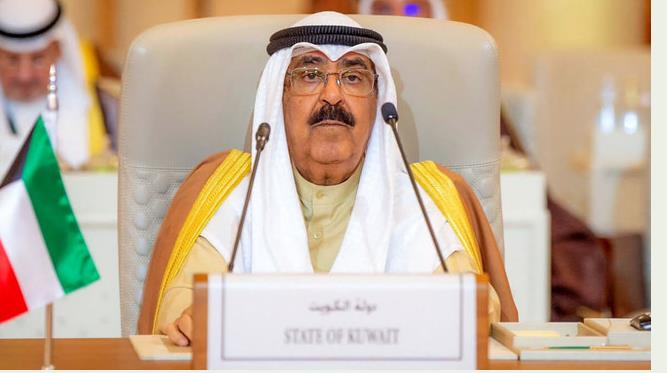
Édouard Philippe has been replaced as prime minister after seeing France through the coronavirus crisis, as President Emmanuel Macron embarked on a high-stakes reshuffle to “set a new course” for the last two years of his mandate.
Macron named Jean Castex, 55, a career civil servant from the centre-right of French politics who coordinated France’s successful exit from lockdown and is widely known as “Monsieur Déconfinement”, as Philippe’s successor. The Elysée Palace said Castex would form the next government.
The palace said on Friday morning that Philippe – who dined with Macron on Wednesday and met him again on Thursday, and whose calm, unshowy handling of the pandemic has made him increasingly popular – had submitted his resignation.
In an unrelated development, it was announced later on Friday that a French court dealing with claims of ministerial misconduct had opened an inquiry into Philippe and two cabinet ministers, former health minister Agnes Buzyn and her successor Olivier Veran, over their handling of the coronavirus crisis.
The Law Court of the Republic (CJR) had received 90 complaints, nine of which would form the basis of the inquiry, senior prosecutor Francois Molins said.
Sources in the president’s office insisted the discussions between the president and his outgoing premier had been warm and friendly, with both agreeing on “the need for a new government to embody the next phase, a new path”, Reuters reported. Macron on Friday praised Philippe’s “outstanding work” in the past three years.
The president, whose ambitious economic reforms have been thrown off track by the Covid-19 crisis, had previously promised to “reinvent” himself and his presidency in the wake of the pandemic, in order particularly to be able to better confront the deep recession it is forecast to cause.
In an interview with regional newspapers published late on Thursday, Macron said France must prepare for a “very difficult” economic crisis, “so we have to chart a new course … based on economic, social, environmental and cultural reconstruction. Behind this, there will be a new team.”
Other top ministers could also be on the way out in the cabinet reshuffle, with the interior minister, Christophe Castaner, who has been strongly criticised over the failure to contain the rioting and looting that marred the “yellow vest” protests of 2018-2019, seen as most likely to go.
During the extremes of the crisis it fell to Philippe to deliver the detail of France’s strategy, while Macron painted a bigger picture. During news conferences, the prime minister’s measured and reassuring style won applause as he explained and justified tough lockdown rules and a series of other unpopular measures.
Philippe’s popularity grew as Macron’s slipped. A poll last week suggested 44% of voters had a favourable opinion of the president, compared with 51% for his prime minister – a jump of 13 points for Philippe since the start of the epidemic. It prompted speculation Macron might not want a premier who stole the limelight.
Philippe, 49, was appointed in 2017 after Macron’s presidential election victory. At the time he was a member of the centre-right Les Républicains (LR) party, which he subsequently left – but without ever joining the president’s centrist La République en Marche (LREM), fuelling tensions with the Élysée.
The announcement came days after the prime minister was re-elected mayor, with a large majority, in his Normandy bastion of Le Havre, to where he is now thought likely to return even if his longer-term ambitions are unclear.
The local elections revealed surging support for the Green party, which captured several major French cities, and underlined Macron’s troubles connecting with ordinary people. His LREM movement failed to win a single big city, depriving the president of a local power base ahead of 2022.
Jérôme Fourquet of the pollsters Ifop had earlier suggested Macron might be unwise to dump his popular PM. “The difficulty for Macron is that Philippe is not only popular, but difficult to replace and a potential rival,” he said.
Replacing Philippe is seen as a significant gamble for Macron, analysts say – but keeping him would have suggested the president was too weak to let go of a popular prime minister, and that LREM lacked the depth of talent for a full cabinet overhaul.
Macron and LREM swept to victory in presidential and parliamentary elections in 2017 by blowing up France’s political landscape, exploding the traditional centre-right and centre-left parties. Neither LR nor the Socialist party have recovered.
While the present still needs to appeal to left-of-centre voters, Marine Le Pen of the far-right Rassemblement National (RN) is widely tipped to again make it into the second round of the presidential election in 2022. Macron is therefore seen as needing above all to pick up support from rightwing voters.
Although Castex, Philippe’s replacement, is on the right of French politics, he was described by one official as a “social Gaullist” – a reference to the more interventionist, socially minded wing of the LR.
An Elabe poll published earlier this week showed Macron leading the first round of voting if a presidential election were held tomorrow – even if the Greens and the Socialist party fielded a joint candidate. In a second-round runoff with Le Pen, the poll predicted he would win by 58.5% to the far-right leader’s 41.5%.











